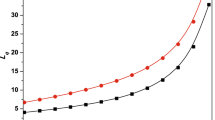Abstract
A Mx/G/1 Queueing system with two service modes under (a, c, b) policy is considered. A single server Poisson queue with state dependent service is considered for analysis. The service is rendered with different service patterns (different distributions) as singly or in bulk according to the queue length. If the queue length reaches the threshold value ‘a’ then the server does single service and if the queue length reaches the value ‘c’(c > a), then the server selects batch service with variable batch size with a maximum batch size of ‘b’ (b > c). The server starts the service only if number of customers in the queue is at least ‘a’. The Server switches over from single service to batch service or vice-versa only at service initiation epochs depending on the queue length. The probability generating function of the queue size at an arbitrary time epoch is obtained using supplementary variables technique. Some important performance measures are also obtained. Numerical example is presented in order to illustrate the effectiveness of the model.


Similar content being viewed by others
References
Medhi, J.: Stochastic Models in Queueing Theory, 2nd edn. Academic Press (2003)
Takagi, H.: Queueing AnalysisA Foundation of Performance Evaluation, Vol. I: Vacations and Priority Systems, Part-1, North Holland (1991)
Takagi, H.: Queueing Analysis: A Foundation of Performance Evaluation, Vol. 2: Finite Systems, North Holland (1991)
Lee, H.S.: Steady state probabilities for the server vacation model with group arrivals and under control operation policy. J. Korean OR/MS Soc. 16, 36–48 (1991)
Lee, H.W., Lee, S.S., Chae, K.C.: Operating characteristics of MX/G/1 queue with N-policy. Queueing Syst. 15, 387–399 (1994)
Krishna Reddy, G.V., Nadarajan, R., Arumuganathan, R.: Analysis of a bulk queue with N—Policy multiple vacations and setup times. Comput. Oper. Res. 25(11), 957–967 (1998)
Nishimura, S., Jiang, Y.: An M/G/1 vacation model with two service modes. Probab. Eng. Inf. Sci. 9, 355–374 (1994)
Nobel Rein, D., Timjs, H.C.: Optimal control for an MX/G/1 queue with two service modes. Eur. J. Oper. Res. 113, 610–619 (1999)
Cox, D.R.: The analyses of non-Markovian stochastic processes by the inclusion of supplementary variables. Proc. Cambridge Philos. Soc. 51, 433–441 (1965)
Neuts, M.F.: A general class of bulk queues with Poisson input. Ann. Math. Stat. 38, 759–770 (1967)
Acknowledgement
The authors are grateful to the anonymous referees for their valuable comments that helped us to improve the quality of the paper.
Author information
Authors and Affiliations
Corresponding author
Appendix
Appendix
1.1 Proof of the theorem 5.3.1
Let I j = 1, if the system states becomes j during idle period= 0, otherwise.
Define \( \pi_{\rm{j}}^1,\,\,\pi_{\rm{j}}^2 \) as the probability that there are ‘j’ customers in the queue at batch service completion and single service completion epochs respectively.
Conditioning on the queue size at service completion epochs, for batch service completion epoch,
where \( {\hbox{P}}\left[ {{\hbox{I}}_{\rm{j}}^\prime = {1}} \right] \) is the probability that the system state becomes ‘j’ when the server is in idle period and α j = pj is the probability that ‘j’ customers are in the queue at batch service completion epoch.
For single service completion epoch, \( \pi_{\rm{j}}^2 = {\gamma_{\rm{j}}} \), j = a−1, where γ j is the probability that j (= a−1) customers are present in the queue at single service completion epoch.
π j (j = 0,1,2,…,a−1) can be computed using α j (= pj), γ a−1 (= Ra−1) from the Eqs. 5–7.
From the above statement, \( \sum\limits_{{\rm{j}} = 0}^{{\rm{a}} - 1} {} \) Ij, j the number of states visited during idle period,thus,
Since the average staying time in any state during an idle period is 1/λ, the expected length of idle period E(I) is \( {1}/\lambda \sum\limits_{{\rm{j}} = 0}^{{\rm{a}} - 1} {{\pi_{\rm{j}}}} \).
Hence the theorem.
Rights and permissions
About this article
Cite this article
Arumuganathan, R., Jeyakumar, S. A study on bulk arrival non Markovian single service queue with state dependent service. OPSEARCH 47, 128–142 (2010). https://doi.org/10.1007/s12597-010-0019-9
Accepted:
Published:
Issue Date:
DOI: https://doi.org/10.1007/s12597-010-0019-9




